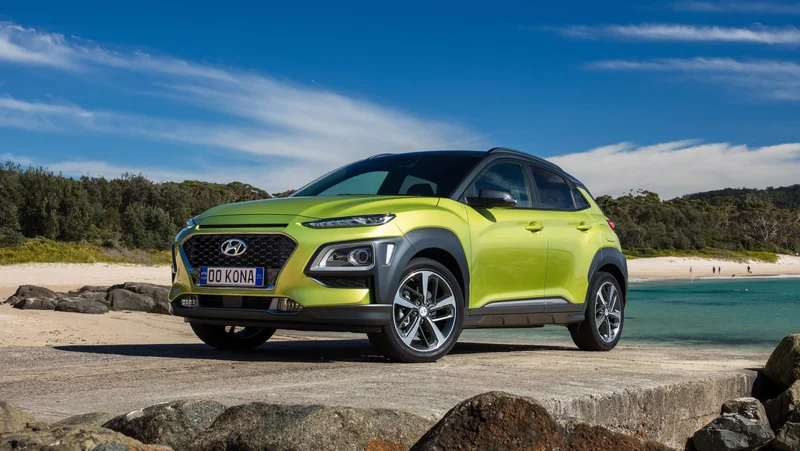Okay, folks, buckle up, because we need to talk about something that could change everything about how we interact with our cars – and not necessarily in a good way. I’m talking about Hyundai's recent moves, and what they signal for the future of car ownership. It's a wild ride, so stay with me.
We all know that electric vehicles are the future, promising simpler repairs and a greener planet. But what happens when manufacturers start using electrification as an excuse to lock down even the most basic DIY repairs behind paywalls? It feels like we're being pushed towards a future where owning a car means constantly shelling out cash just to keep it running, and frankly, that's not the kind of future I want to see.
Take the story of the Reddit user [SoultronicPear], who ran into a brick wall trying to change the brake pads on their Ioniq 5N. This isn't some hyper-complex engine rebuild we're talking about; it's brake pads! They bought the expensive subscription and interface tool, only to get their account suspended because Hyundai decided it wasn't meant for regular folks like you and me. I mean, seriously? The audacity! It's like needing a permission slip from the car company just to top off the windshield wiper fluid. Hyundai Paywalls Brake Pad Changes
This isn't just about Hyundai, either. It's a symptom of a larger trend in the automotive industry – a move towards greater control over car maintenance and repair. And while companies like Slate and Telo offer a glimmer of hope with their promises of more open platforms, we’re still waiting to see if they’ll truly deliver.
Now, I know what some of you might be thinking: "But Aris, aren't cars getting more complex? Shouldn't trained professionals be handling these repairs?" And yes, there's definitely some truth to that. Modern vehicles are marvels of engineering, packed with sophisticated electronics and software. But does that mean we should give up all control over our vehicles? Does it mean we should be forced to pay exorbitant fees just to perform routine maintenance? I don't think so.
It reminds me a little bit of the early days of the printing press. Imagine if Gutenberg had decided to license his press only to a select few, charging exorbitant fees for every printed page. The Renaissance might never have happened! The free flow of information is essential for progress, and the same holds true for our cars. We need to ensure that owners have the right to access information, tools, and parts needed to maintain and repair their vehicles.

And it's not just about convenience or cost savings. It's about freedom. It's about empowering individuals to take control of their own lives and their own property. It's about fostering a culture of innovation and creativity, where anyone can tinker with their car, modify it, and push the boundaries of what's possible.
But here’s the kicker: while Hyundai is busy paywalling brake pad changes, they're also facing a major lawsuit in California. Jobs to Move America is trying to ban the sale of Hyundai vehicles in the state until the company reforms its labor practices. The lawsuit alleges that Hyundai relies on a supply chain with "unsafe" workplaces, leading to preventable injuries and deaths. Hyundai denies these claims, of course, but the optics are terrible. California lawsuit seeks to ban sale, marketing of Hyundai vehicles in the state until “unconscionable” labor practices end
Can you believe this? On one hand, they're trying to squeeze every last dollar out of consumers by paywalling basic repairs. On the other hand, they're accused of exploiting workers in their supply chain. It's a double whammy of bad behavior, and it raises serious questions about Hyundai's corporate values.
When I first read about the lawsuit, I honestly just felt a wave of disappointment. I mean, I want to believe that companies like Hyundai are committed to creating a better future. But these kinds of stories make it hard to stay optimistic.
But here's the thing: I still believe in the power of innovation. I still believe that technology can be a force for good in the world. But it's up to us to ensure that it's used responsibly and ethically. We need to demand transparency, accountability, and fairness from the companies that are shaping our future. What this means for us is we need to be vocal about our concerns, support right-to-repair initiatives, and hold companies like Hyundai accountable for their actions. But more importantly, what could it mean for you? Imagine a world where car ownership is truly empowering, where you have the freedom to customize, repair, and maintain your vehicle without having to ask permission from anyone. That's the future I want to see, and I believe we can get there if we work together.
I hope not, but it's a risk. We need to fight for a future where technology empowers us, not controls us. It is imperative that we advocate for ethical labor practices and the right to repair. The future of mobility depends on it.